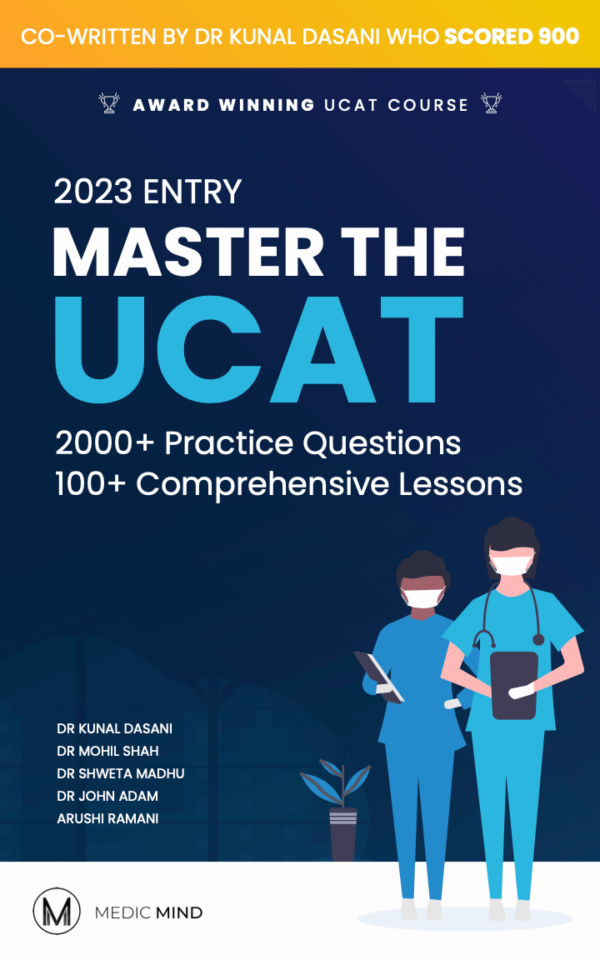Loading...

Personal Statement: Academic Interest
Introduction
When considering what to include in your personal statement, it is important to remember what information is included in your basic UCAS application. For example, medical schools will already have your GCSE and A-level grades, therefore, including this in your personal statement is a waste of character count that you are allowed. Instead when we say academic achievements there are other things you can include:
- EPQ or project – If you have completed a science based extended project qualification, or similar, you may want to talk about this in your personal statement.
- Academic Awards – you may have won awards at school for your academic ability, and you may wish to include this in your personal statement too.

How do I talk about my academic interest?
When talking about academia most applicants think of their school grades, but how else can you demonstrate your academic ability? Have you read any books or journals, or studied above and beyond the curriculum at school? These are things you can include in your personal statement that will both interest the examiner and demonstrate your high academic ability.
- Journals – you may have read an article in a scientific journal such as the Student BMJ that was of particular interest.
- Books – these may be scientific books or personal medical stories. Books such as those by Adam Kay and Henry Marsh are very popular amongst medical students and applicants to medical school, and can add interest to your personal statement.
- Talks you have attended – Academic interest doesn’t have to be in the form of traditional journals and books, you may have been to an interesting scientific talk or exhibition that inspired you with regards to science and medicine. The Body Worlds exhibitions, shown world wide are unique and interesting exhibitions to talk about, so why not visit one if you have the chance.
Worked Examples
“I have read seven medical journals, set up my school medical society and have attended many debates on scientific advancements.”
Although this shows the candidate has done a lot, it is just listing and doesn’t show any insight into what the candidate learnt. Try to pick one and focus on this by describing your academic achievements in it, such as the next example.
“Setting up our school medical society has given me a platform to debate and research a diverse range of topics, such as the implications of the development of resistance in cancer cells to chemotherapy.”
In this example the candidate has stuck to talking just about their medical society and how this has meant they have done extra reading to debate with peers, such as their example of the development of resistance in cancer cells to chemotherapy. This is a great choice, as it is medically relevant, beyond their curriculum and also shows knowledge and understanding of current healthcare issues.
Final Note
So, there you have it! Don’t worry if you have very few academic achievements or none – it’s not an issue at all! We recommend that you read at least one journal or book to display your academic interest in medicine as it will show the medical schools that you have a genuine interest in the area.

Frequently Asked Question
→What is a Personal Statement Academic Interest?
A Personal Statement Academic Interest is a section of your personal statement that focuses on your academic background and interests. This section is an opportunity for you to showcase your academic achievements, research experience, and academic interests.
→What should I include in my Personal Statement Academic Interest?
In your Personal Statement Academic Interest, you should highlight your academic achievements and experience, including any research or relevant coursework you have completed. You should also discuss your academic interests and how they relate to your chosen field of study, as well as any future academic goals or plans you have.
→What are some tips for writing a strong Personal Statement Academic Interest?
To write a strong Personal Statement Academic Interest, you should focus on highlighting your academic achievements and experience, as well as your academic interests and future goals. You should also be sure to tailor your statement to the specific program or institution you are applying to, and avoid using generic statements or cliches.
→How long should my Personal Statement Academic Interest be?
Your Personal Statement Academic Interest should be concise and to the point, typically no more than one or two paragraphs. It should provide a clear and compelling overview of your academic background and interests, while leaving plenty of space for the rest of your statement.
→How important is the Personal Statement Academic Interest?
The Personal Statement Academic Interest is an important part of your personal statement, as it provides the admissions committee with insight into your academic background and interests. A strong Personal Statement Academic Interest can help to demonstrate your preparedness for the program and your passion for your chosen field of study.
→Can I discuss my extracurricular activities in my Personal Statement Academic Interest?
While your extracurricular activities can demonstrate your overall character and leadership skills, they may not be directly relevant to your academic interests. As such, it is best to discuss your extracurricular activities in a separate section of your personal statement, such as your Personal Statement Extracurriculars.
Related
Related
Support for the whole medical application process from UCAS application, UCAT/BMAT, personal statement, interview and more!
With over 1000 UCAT questions, mock paper walkthroughs and timing tips and advice
A unique opportunity to explore the world of healthcare through interactive simulations and real-life case studies. Run by senior physicians
Personalised private lessons, tailored to your UCAT needs





Was this article helpful?
Still got a question? Leave a comment
Leave a comment